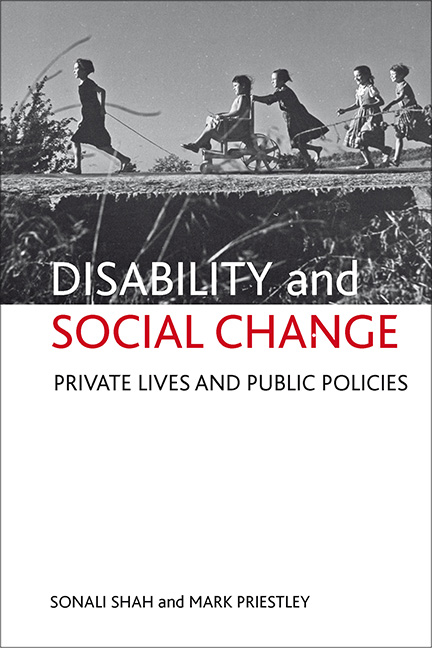six - Working for a living
Published online by Cambridge University Press: 01 September 2022
Summary
The preceding chapters have emphasised life choices and chances in childhood. They also illustrated how childhood transitions can establish trajectories that affect adult careers. This chapter turns to work and employment as a key factor in transitions to adulthood, and as a key preoccupation of disability policies since the 1940s. It is perhaps worth noting at the outset that few in the youngest generation (born in the 1980s) had yet entered the adult labour market, either because they were still in full-time education or because they had not found paid employment. Conversely, the long work experience of some in the older generations provided useful insights into the changes they had witnessed up to the present day.
Work and employment have been viewed as central to inclusion in adult life, by disability activists and policy makers alike (Priestley, 2000). For example, those who pioneered the development of social model thinking in the 1970s and 1980s asserted a strong structural relationship between employment and social inclusion, arguing that:
the struggle to achieve integration into ordinary employment is the most vital part of the struggle to change the organisation of society so that physically impaired people are no longer impoverished through exclusion from full participation.… All the other situations from which physically impaired people are excluded are linked, in the final analysis, with the basic exclusion from employment. (UPIAS/Disability Alliance, 1976, pp 15–16)
Like education, employment is an expansive theme and it would be impossible to cover the full range of issues arising from the stories here. As with the previous chapters, the main emphasis is on relationships between public policies and people's private lives. The examples focus on three themes arising from the stories. The first section looks at the kinds of help people drew upon to look for work in changing labour markets. The second section considers barriers to employment and the impact of changing policies. The final section addresses the substitution of meaningful employment with alternative occupation.
Help in looking for work
The experiences of looking for work in the life stories revealed much about the strategies that people used to navigate their way into the labour market, and the kinds of public and private help they received.
- Type
- Chapter
- Information
- Disability and Social ChangePrivate Lives and Public Policies, pp. 119 - 146Publisher: Bristol University PressPrint publication year: 2011



